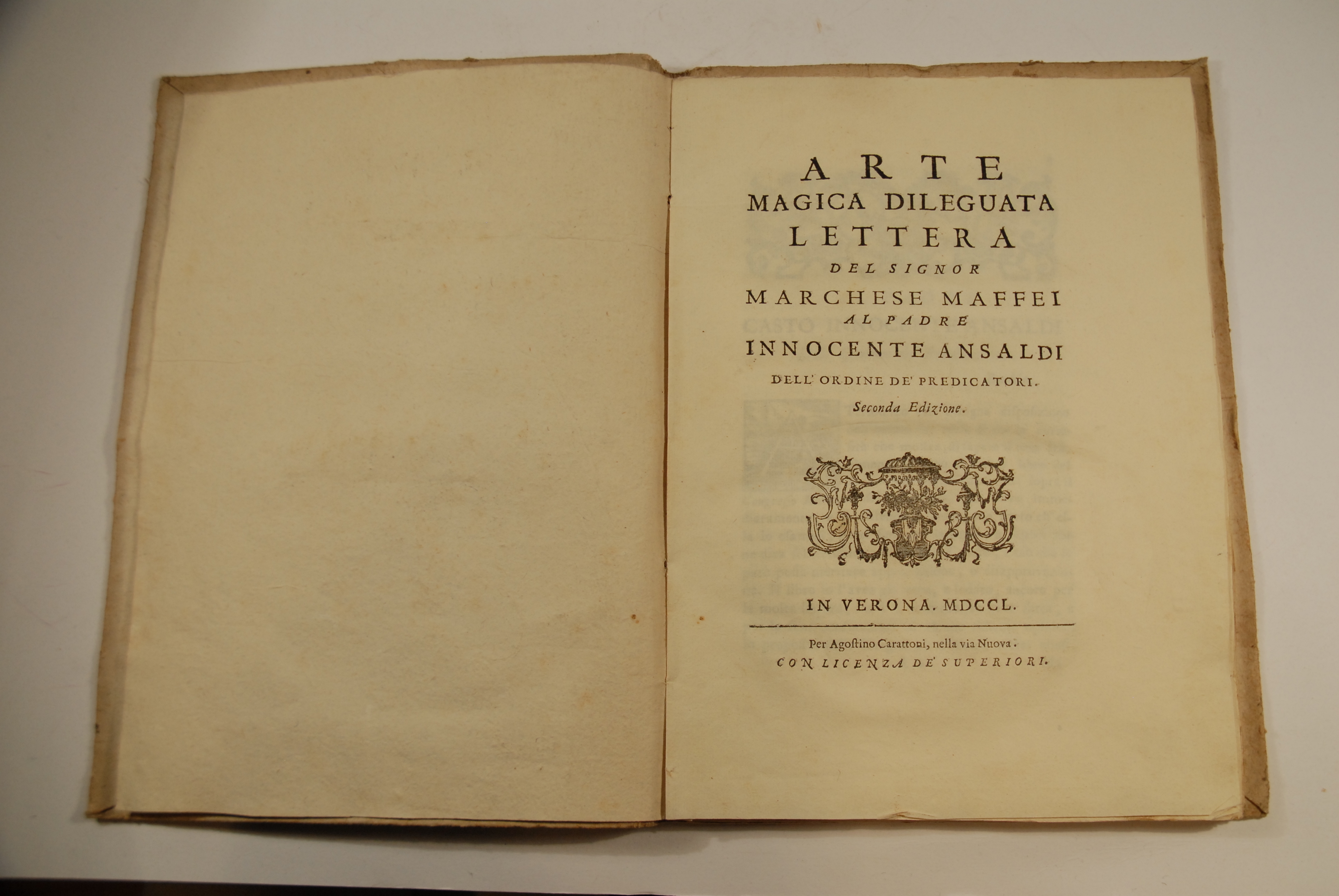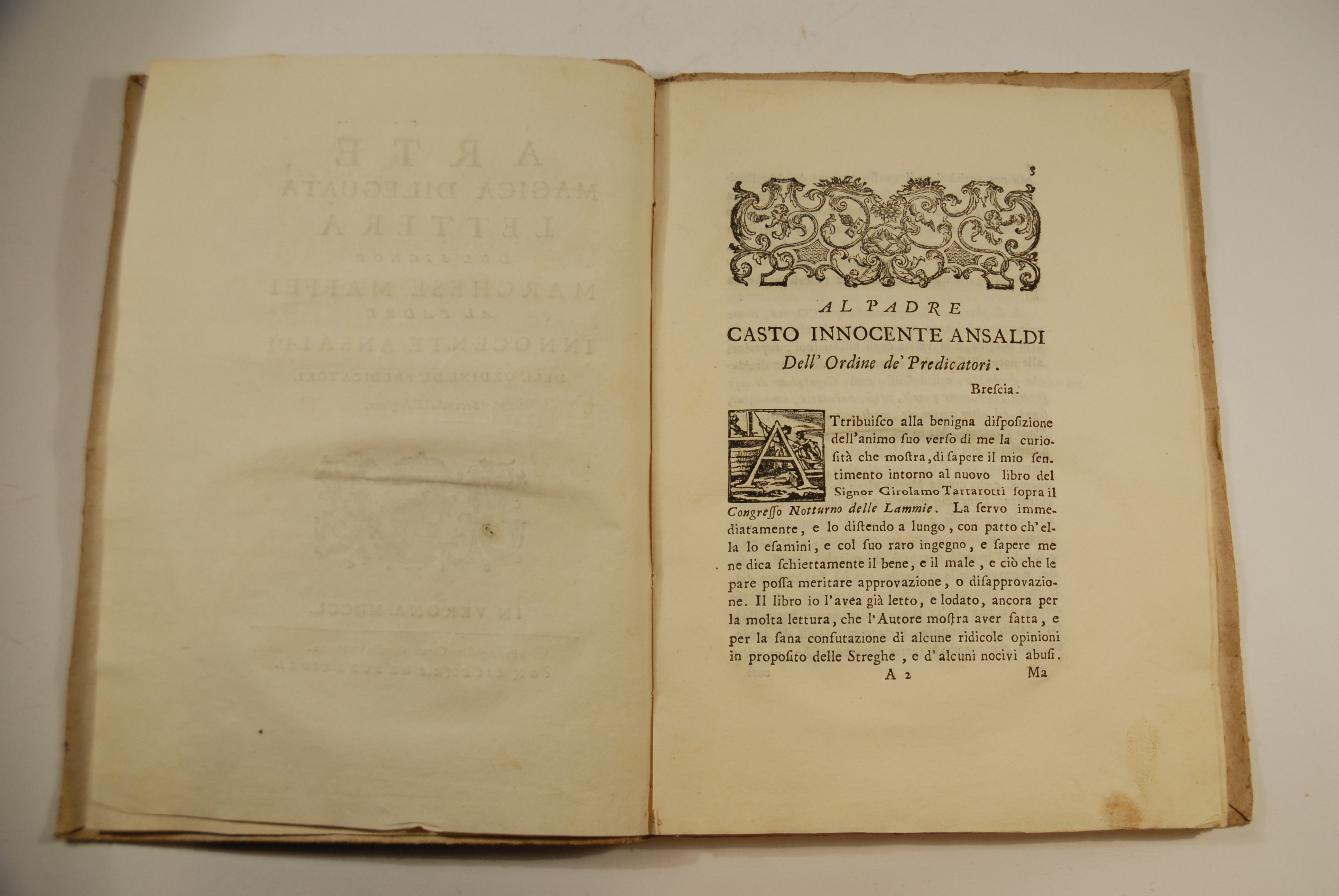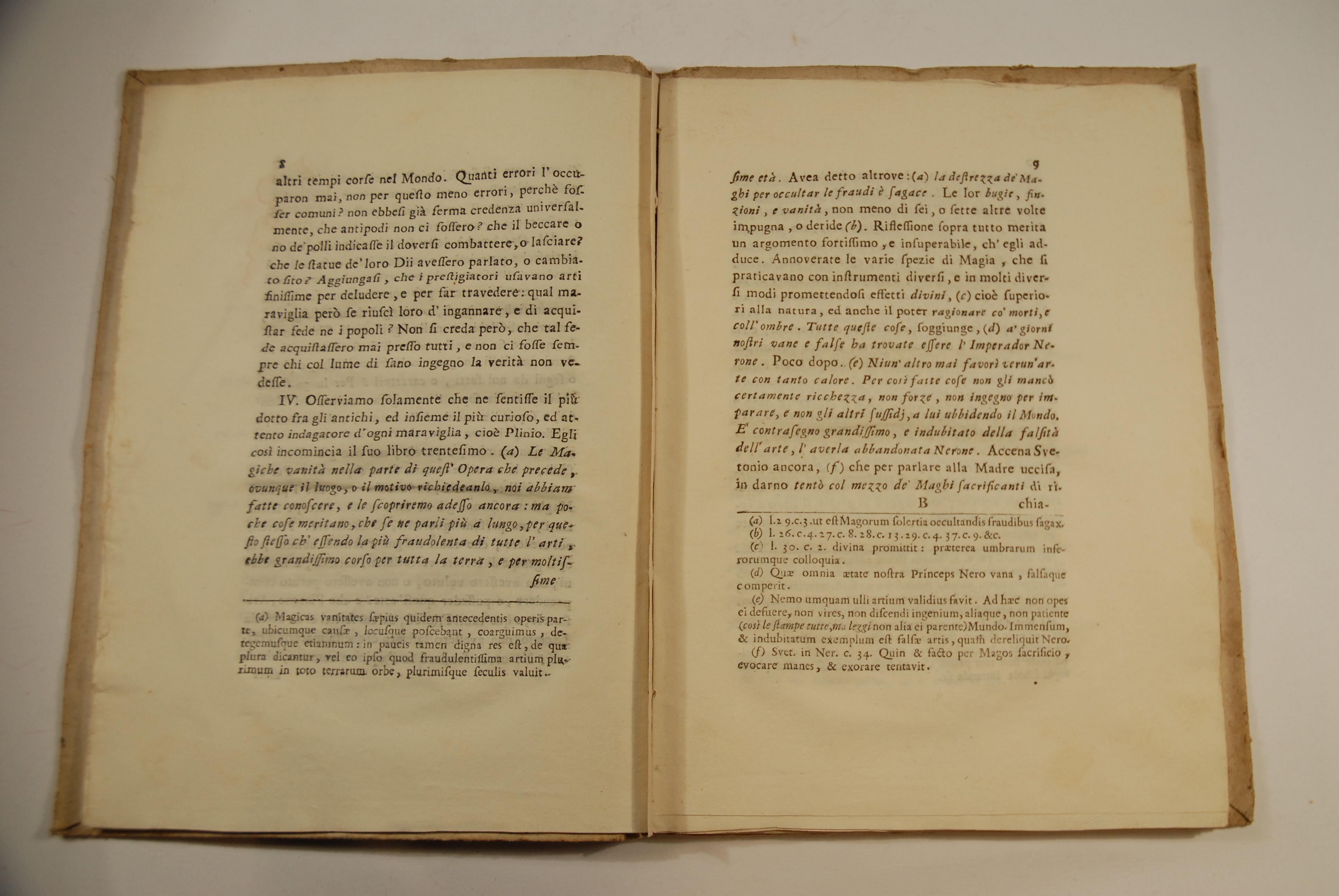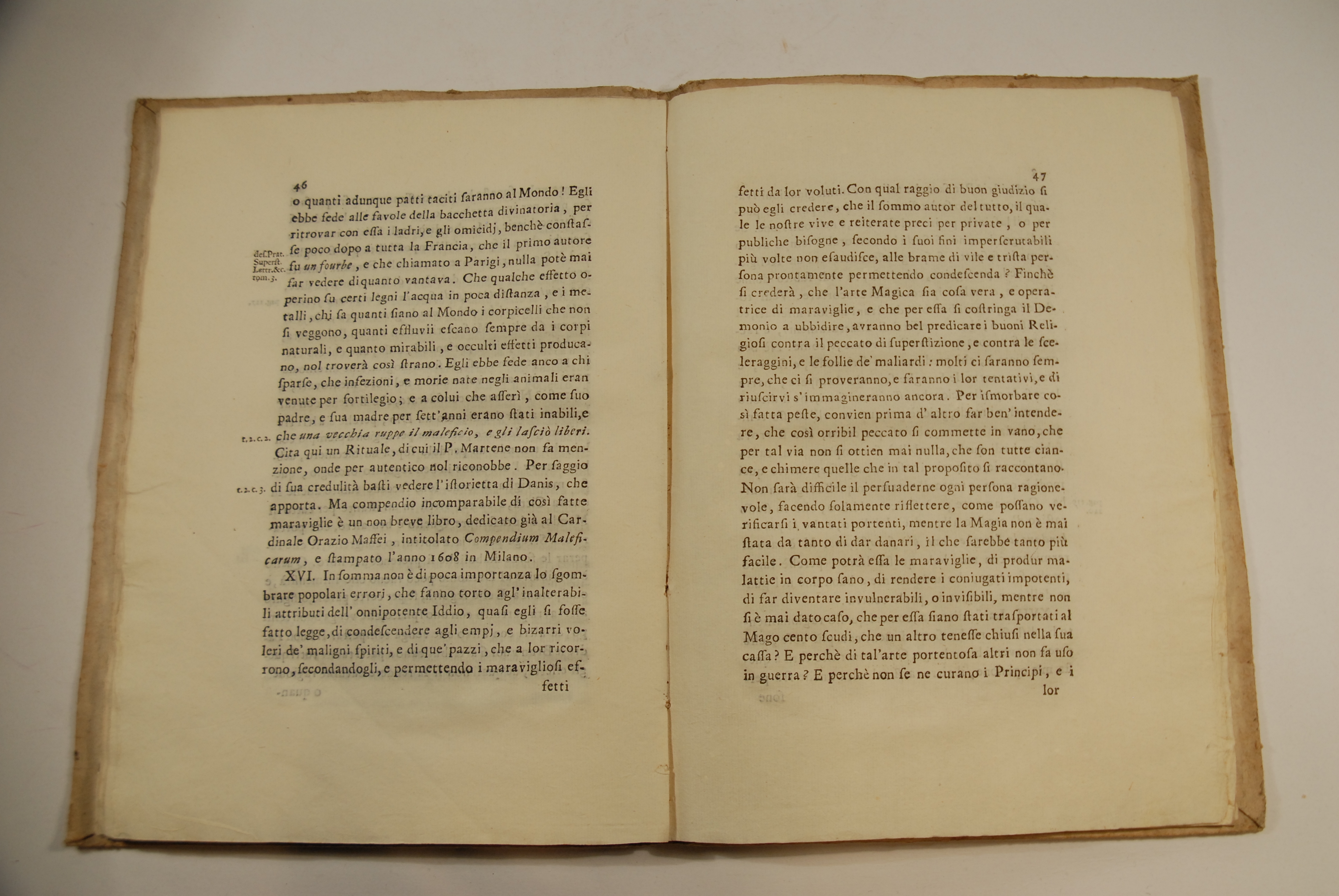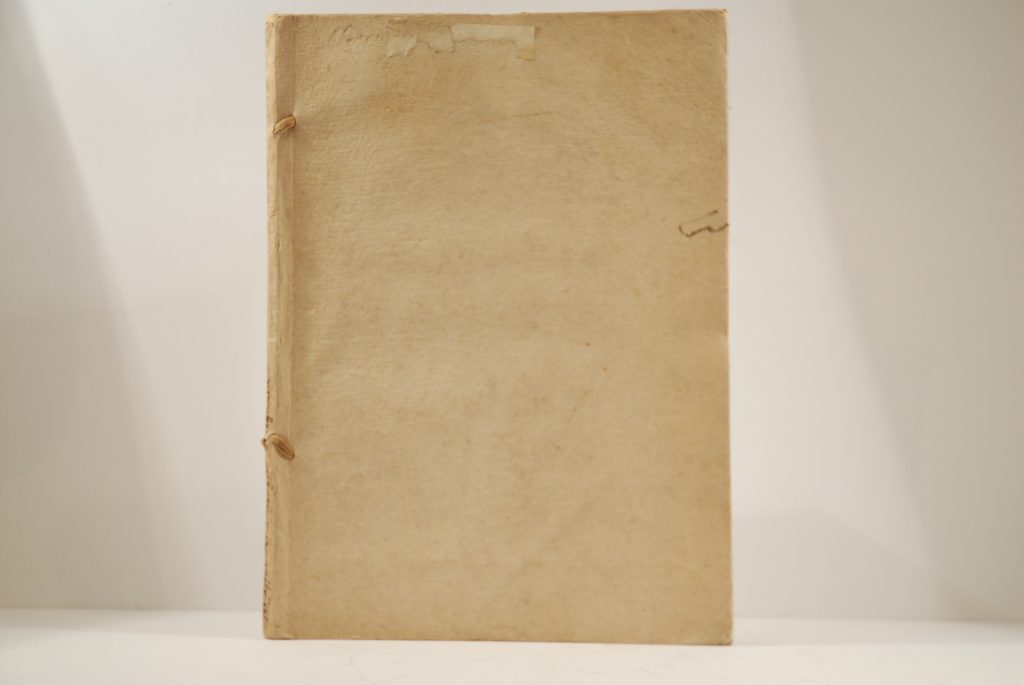MAFFEI, Francesco Scipione
WITCHCRAFT AND THE ENLIGHTENMENT
Arte magica dileguata
Verona, Agostino Carattoni, 1750£1,750.00
Large 4to. pp. 55 (i). Roman letter, occasional Italic. Printer’s device to t-p, decorated initials and headpieces. Light age yellowing, thumb mark to second fol., occasionally slight marginal foxing, faint water stain to one fol., paper flaw to upper margin of last. A very crisp, clean, large paper copy in C18 vellum over pasteboards.
Excellent copy of the second edition of this influential treatise against C16 and C17 theories of witchcraft. After studying at the Jesuit college in Parma, Francesco Scipione Maffei (1675-1755) served as officer in the Bavarian army and later returned to Italy. His intellectual production encompassed plays, an illustrated history of Verona, essays on medieval palaeography (based on Jean Mabillon’s ground-breaking theories), treatises on politics and religion. Maffei adhered to the ‘Enlightened Catholicism’ upheld by Ludovico Antonio Muratori, whereby faith and ritual were reassessed with new attention to the sound principle of reason so dear to the European Enlightenment. ‘Arte magica dileguata’ criticised traditional notions of witchcraft and magic calling wizards ‘tricksters’, magic ‘a chimera’ and witches’ Sabbaths ‘laughable matter to all who are not stolid’. With the help of ancient and more recent authorities, Maffei debunked the deep wisdom and knowledge assigned to witches and occult ‘sciences’ and any positive correlation between supernatural spirits and human signs, acts or words. Even he had been supposed a wizard whilst experimenting with electricity, later discovering that lightning originates on earth and not in the sky. How could Christians, Maffei wonders, ever believe that God would wilfully allow the Devil to damage, hurt and even kill humans by means of magic? The work sparked heated debates in the form of 14 pamphlets—theories which Maffei summarised and discredited in ‘Arte magica annichilata’ in 1754.
Not in Caillet.In stock



